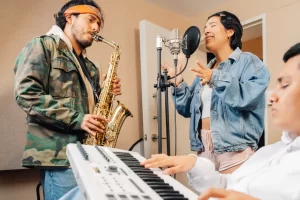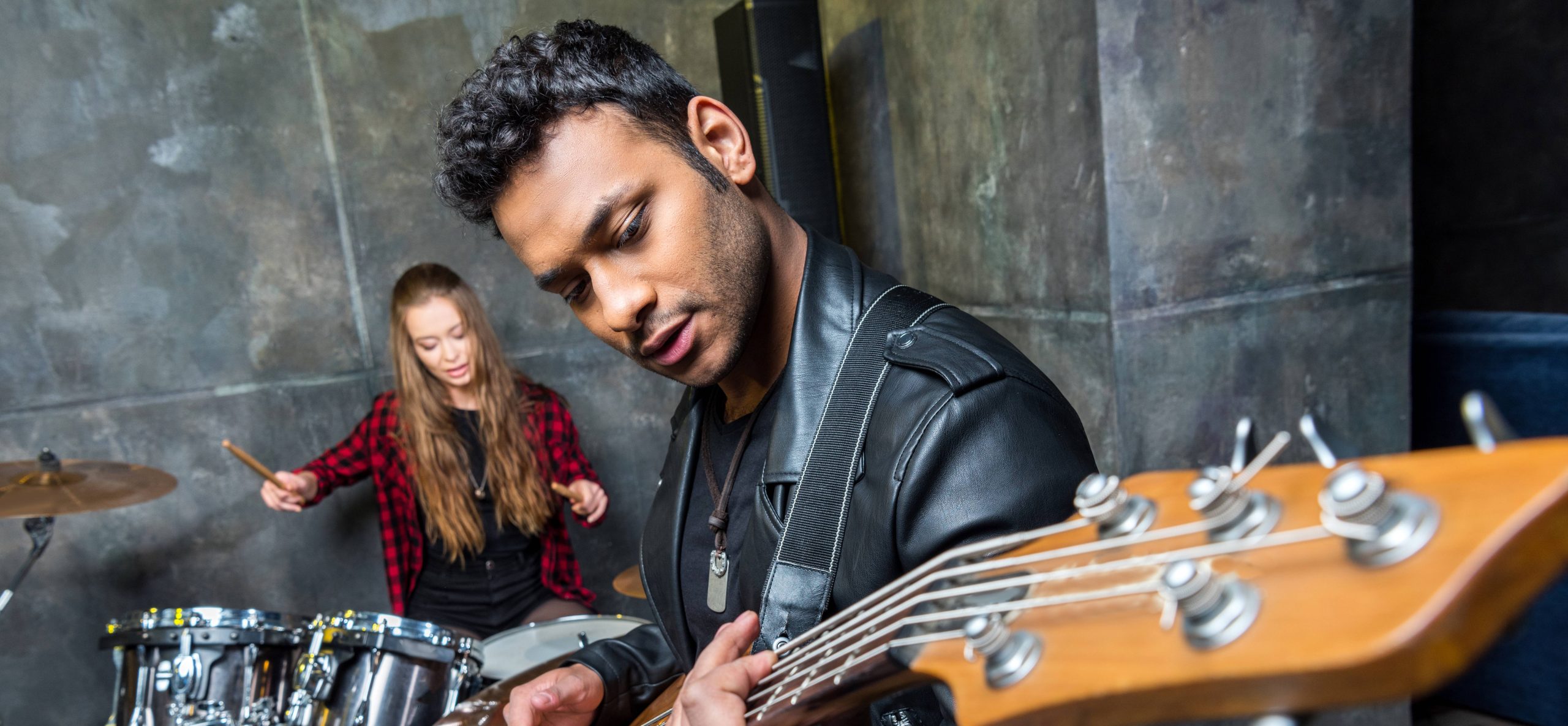Touring is often romanticized as the quintessential musician’s experience, conjuring images of enthusiastic crowds, new cities, and the thrill of live performance. Yet, for many independent musicians and bands, the reality of touring, especially when constrained by a tight budget, is a challenging venture that requires meticulous planning, resourcefulness, and strategic decision-making. “Touring on a Shoestring: Cost-Effective Strategies for Musicians on the Road” is designed to be a practical guide for navigating these challenges and making the most out of touring experiences without breaking the bank.
In this comprehensive post, we will delve into the nuts and bolts of budget-friendly touring, providing actionable advice and innovative solutions tailored for musicians looking to maximize their touring potential while minimizing expenses. From transportation and accommodation to daily expenses and gig management, each aspect of touring will be examined through the lens of cost-effectiveness and efficiency.
Our goal is to equip you, whether you’re a solo artist hitting the road for the first time or a band planning a multi-city tour, with the knowledge and tools necessary to plan a successful tour on a budget. We’ll cover everything from setting a realistic budget, based on projected income and expenses, to sharing tips on managing daily living costs while on the road.
Understanding that transportation and lodging represent significant portions of tour expenses, we will explore various options and hacks to reduce these costs without compromising safety and comfort. Additionally, the post will provide insights into venue and gig management, highlighting how to negotiate terms with venues, maximize income through merchandise sales, and effectively market your shows to increase attendance.
By the end of this guide, you’ll have a clearer understanding of the financial intricacies of touring and be better prepared to embark on your musical journey, ensuring each mile traveled and note played contributes positively to your artistic journey and financial wellbeing.
Pre-Tour Planning
The foundation of a successful and cost-effective tour lies in thorough pre-tour planning. This stage is crucial for setting realistic financial expectations and ensuring that every aspect of the tour is aligned with your budget.
Setting a Realistic Budget
Start by estimating your total income from the tour, including ticket sales, merchandise profits, and any other potential revenue streams. It’s vital to be conservative with these estimates to avoid overestimating your income. Next, itemize your expected expenses, which typically include transportation, accommodation, food, venue fees, equipment rental, and emergency funds. This preliminary budget will serve as your financial roadmap, helping you make informed decisions throughout the tour.
Advance Planning and Booking
Early planning can lead to significant savings, especially when it comes to transportation and accommodation. Booking flights, renting vehicles, and reserving lodging well in advance often result in better deals and discounts. Additionally, consider the timing and routing of your tour. Efficient route planning can minimize travel time and expenses, and choosing off-peak travel periods can further reduce costs.
Research and Preparation
Research is your ally in budget touring. Investigate potential venues and their terms, understand the demographics of your destinations, and assess the local cost of living. This information can guide you in setting ticket prices and planning your merchandise strategy. Also, consider reaching out to local artists or promoters who can provide valuable insights and might be open to collaboration, reducing promotional costs.
Contingency Planning
Always have a contingency plan for unexpected situations. Whether it’s a vehicle breakdown, a canceled gig, or unforeseen health issues, having a backup plan and an emergency fund can be a lifesaver. This fund should be a part of your initial budget planning and kept aside for emergencies only.
Pre-tour planning might seem daunting, but it’s an investment that pays off by reducing risks, avoiding unnecessary expenses, and ensuring a smoother, more enjoyable touring experience. With a solid plan in place, you can focus on what you do best – delivering amazing performances and connecting with your audience.
Transportation Solutions
Moving on to the crucial aspect of transportation, which often constitutes one of the largest expenses in touring, it’s important to explore all available options and choose the one that aligns best with your budget and tour schedule. If you’re touring regionally, renting a van or a small bus might be the most economical choice. It allows for flexibility in travel and the convenience of carrying your equipment. To save on rental costs, look for discounts, compare prices across different rental services, and consider longer-term rental deals which often come at a lower daily rate. Additionally, regular maintenance checks are essential to avoid costly repairs and ensure safety on the road.
For longer, cross-country tours, flying might be necessary. In such cases, book flights well in advance and be on the lookout for deals or group discounts. Once you land, local public transportation or rented vehicles for city-specific travel can be cost-effective. Remember, the key is to balance cost, convenience, and time efficiency.
When it comes to lodging, the expenses can quickly add up, so it’s crucial to think creatively. Options like budget motels, hostels, or Airbnb can offer affordable accommodations. Alternatively, consider reaching out to fans or local contacts for a place to stay. This not only saves money but can also help in building a deeper connection with your audience. Another option is to explore opportunities for overnight stays in RV parks or rest areas, particularly if you’re traveling in a rented van or bus equipped for sleeping.
Food expenses on the road can also be a significant drain on your budget. Instead of dining out for every meal, consider packing non-perishable food items or preparing meals in your accommodation if facilities are available. When eating out, opt for budget-friendly local eateries or diners. Not only is this more economical, but it also offers a taste of the local culture.
While transportation and accommodation require a significant portion of your budget, there are numerous ways to minimize these costs. By carefully planning and considering less conventional options, you can significantly reduce your expenses, ensuring that your tour is financially viable and enjoyable.
Accommodation Hacks
Accommodation on tour is a critical factor that can significantly impact your budget. With the cost of hotels and motels adding up quickly, it’s important to explore alternative options that are both comfortable and cost-effective. One strategy is to book accommodations in advance, which often allows for better deals. Look for budget-friendly hotels or motels, and consider staying a little outside the main city areas where prices can be lower.
Another economical option is to use platforms like Airbnb, which can offer affordable rates, especially for groups. Sometimes, renting an apartment or house can be more cost-effective than booking multiple hotel rooms, and it often provides amenities like a kitchen, which can save money on food. Hostels are also a great option, particularly for solo artists or small bands, as they are usually cheaper than hotels and can be a fun way to meet other travelers.
For an even more budget-friendly approach, consider reaching out to your fan base or local contacts in the cities you’ll be visiting. Fans are often willing to host artists, providing a unique opportunity to connect with your audience on a personal level. Not only does this save on accommodation costs, but it also fosters a deeper community around your music.
Additionally, if you’re touring in a van or bus, overnight parking at safe, legal rest areas can be a viable option. Some artists even invest in vehicles equipped with sleeping arrangements for ultimate flexibility and cost savings.
Remember, while it’s important to be budget-conscious, your health and safety should always be a priority. Ensure that your accommodation choices are safe and provide a comfortable environment for rest and relaxation. Balancing cost, comfort, and safety is key to making smart accommodation choices on tour.
Managing Daily Expenses
Managing daily expenses is a crucial aspect of touring that can significantly impact your overall budget. On the road, costs like food, laundry, and incidental purchases can add up quickly, making it essential to plan and monitor these expenses carefully.
Food is one of the major daily expenses while touring. Eating out for every meal can be costly, so it’s beneficial to strategize your food spending. One approach is to stock up on groceries and prepare meals yourself, especially if your accommodation has kitchen facilities. Buying in bulk and cooking your own food not only saves money but can also be a healthier option. When eating out, look for budget-friendly local eateries or diners rather than opting for more expensive restaurants. In some cases, venues may provide meals or food vouchers as part of the performance agreement, which can help reduce your food expenses.
Another routine expense is laundry. To save money, you can choose accommodations that offer laundry facilities, or use local laundromats. Packing wisely to minimize the need for frequent laundry, such as bringing enough clothes to last between washes, can also help in reducing costs.
It’s also important to keep track of smaller, incidental expenses that can accumulate unnoticed. These might include parking fees, tolls, or emergency purchases like replacing broken guitar strings or other equipment essentials. Keeping a daily log of all expenditures, no matter how small, is a good practice. This not only helps in staying within budget but also provides insights for future tours about where you might be able to cut costs further.
One effective way to manage daily expenses is to allocate a per diem (daily allowance) to each band member. This approach gives everyone a clear understanding of their spending limits and encourages responsible financial behavior.
By being mindful and strategic about daily expenses, you can significantly reduce the financial strain of touring. Effective management in this area ensures that your focus remains on your performances and experiences, rather than financial concerns.
Venue and Gig Management
When it comes to managing gigs and venues on tour, strategic planning can have a considerable impact on your financial success. The negotiation process with venues is critical – understanding the terms and conditions, such as guarantees versus door deals, can make a significant difference in your earnings. A guarantee ensures a fixed income regardless of turnout, while a door deal offers a percentage of ticket sales, which could be beneficial in cities where you have a strong fanbase. Balancing these two types of deals based on your expected audience can optimize your revenue.
Merchandise sales often provide a substantial income stream for touring musicians. Therefore, it’s important to have a variety of merchandise available, such as t-shirts, CDs, vinyl records, and other unique items. The key is to offer a range of products at different price points to cater to different segments of your audience. Having a designated person to handle your merch booth is also crucial, as it ensures that sales are maximized during and after your performance.
Marketing and promotion are essential components of a successful tour, but they don’t have to break the bank. Utilize social media platforms to create buzz about your shows. Engaging with your fans online, sharing tour updates, behind-the-scenes content, and creating event pages can drive attendance without significant expenses. Collaborating with local artists or influencers can also extend your reach. Additionally, simple yet creative guerrilla marketing tactics, like flyer distribution in local hotspots or busking in busy areas before the show, can attract local interest.
Another aspect that can affect your tour’s financial outcome is the daily operational costs. Budgeting for day-to-day expenses such as food, laundry, and parking fees is crucial. Buying groceries and preparing meals can be more cost-effective than eating out. When traveling, look for accommodations with kitchen facilities, and consider sharing meals as a group to reduce costs. Planning your route to minimize tolls and parking fees, and being mindful of spending on non-essentials can help keep your daily expenses in check.
Efficiently managing your gigs, merchandise, marketing, and daily operations requires careful planning and smart strategies. By optimizing these aspects of your tour, you can ensure a more profitable and sustainable journey, allowing you to focus on delivering great performances and growing your fanbase.
To Sum It Up
In conclusion, touring on a shoestring budget is undoubtedly challenging, but with careful planning, creativity, and strategic decision-making, it’s definitely achievable. The key is to approach each aspect of the tour – from pre-planning, transportation, and accommodation to managing gigs, daily expenses, and marketing – with a budget-conscious mindset. By exploring alternative options, staying flexible, and making smart choices, you can significantly reduce costs without compromising the quality of your tour or the experience for both you and your audience.
Remember, successful budget touring is as much about financial management as it is about adaptability and resourcefulness. Embrace the unique experiences that come with touring, including the opportunities to connect with new audiences and fellow musicians. The skills and insights gained from navigating a tour on a tight budget are invaluable, not just for your current tour but for your overall growth as an artist.
Lastly, don’t forget to enjoy the journey. The road might be bumpy at times, but the memories, stories, and connections you make along the way are what define the touring experience. With each city, each performance, and each new fan, you’re not just spreading your music; you’re building a sustainable career in an industry you’re passionate about.




